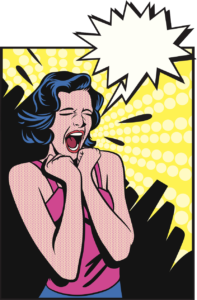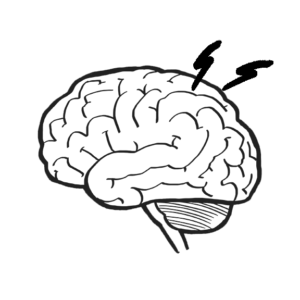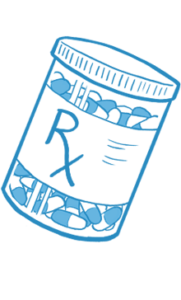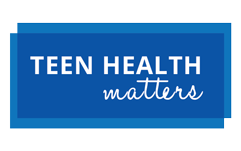
Stress is the body’s reaction to a challenge, which could be anything from outright physical danger to asking someone for a date or trying out for a sports team.

Let’s face it- we all get stressed from time to time. But not all stress is bad. Stress is a perfectly normal reaction to feeling pressure. Stress helps you to deal with life’s challenges, to give your best performance, and to meet a tough situation with focus. The body’s stress response is important and necessary.
Stress in teens is an important, yet commonly overlooked, health issue. Between puberty, changing relationships with peers and the demands of school and families, the teen years can be notorious for rapid changes that cause stress. However, the way in which you cope with this stress can have significant short and long-term consequences on their physical and emotional health.
#DYK (Did You Know?) – Howard County Facts
Mental health problems, such as depression and anxiety, are common responses to chronic or prolonged periods of stress.
Nearly 20% of children and young people ages 3-17 in the United States have a mental, emotional, developmental, or behavioral disorder (source: NIH, 2022)
 30.5% of Howard County Middle School students reported feeling sad or hopeless within a year, with 21.6% seriously considering a suicide attempt. (source: The 2022 Maryland Youth Risk Behavior Survey)
30.5% of Howard County Middle School students reported feeling sad or hopeless within a year, with 21.6% seriously considering a suicide attempt. (source: The 2022 Maryland Youth Risk Behavior Survey)
31.9% of high school students in the county reported feeling sad or hopeless throughout one year, while 20.9% of females and 10.7% of males made plans to attempt suicide. (source: The 2022 Maryland Youth Risk Behavior Survey)
 Common Sources Of Stress
Common Sources Of Stress

• School pressure and career decisions
• After-school or summer jobs
• Dating and friendships
• Death of a loved one
• Pressure to wear certain types of clothing, jewelry, or hairstyles
• Pressure to experiment with drugs, alcohol, or sex
• Changes in your body and/or pressure to be a particular size or body shape. With girls, the focusis often weight. With boys, it is usually a certain muscular or athletic physique. 
• Dealing with the physical and cognitive changes of puberty
• Family conflicts and financial problems
• Being bullied or exposed to violence or sexual harassment
•Busy schedules – juggling school, sports, after-school activities, social life, and family obligations

Signs You May Be Stressed
•Increased headache, stomachache, muscle pain, tiredness
• Shutting down and withdrawing from people and activities
• Increased anger or irritability; i.e., lashing out at people and situations
• Crying more often and appearing teary-eyed
• Feelings of hopelessness
• Chronic anxiety and nervousness
• Changes in sleeping and eating habits, i.e., insomnia or being “too busy” to eat
• Difficulty concentrating
Below are the Top 10 Stress Management Skills
Don’t overwhelm yourself by trying them all at once. Simply pick one or two that you can practice at a time.
- Talk about your problems with others
- Take deep breaths, accompanied by thinking or saying aloud, “I can handle this.”
- Set small goals and break tasks into smaller, more manageable chunks
- Exercise and eat regular meals
- Avoid the use of illegal drugs, alcohol, and tobacco
- Get enough sleep (8-10 hours is recommended!)
- Break the habit of relying on caffeine or energy drinks to get through the day
- Focus on what you can control (your reactions, your actions) and let go of what you cannot (other people’s opinions and expectations); Lower unrealistic expectations
- Schedule breaks and make time for enjoyable activities
- Accept yourself as you are; identify your unique strengths and build on them
(SOURCE: Dyl, J. Helping teens cope with stress. Lifespan. Retrieved from www.lifespan.org/services/childhealth/parenting/teen-stress.html)
Treatment
Many mental health disorders are treatable, but the first step to treatment is to talk with a healthcare provider to get an evaluation.
Services provided depend on the needs and choices of the youth and his or her family, as well as the diagnosis and severity of the concern.

Services may include:
• Psychotherapy with an evidence-based practice
• Peer mentoring
• Care coordination
• Medication
• Combination of all approaches
In addition to getting the right treatment, leading a healthy lifestyle can play a role in managing symptoms of depression or anxiety.
 Symptoms can be managed by:
Symptoms can be managed by:
• Maintaining a healthy diet
• Engaging in physical activity for at least 60 minutes each day
• Getting adequate sleep at night based on age
• Practicing mindfulness techniques
Stress is the biggest weight you can’t see. That’s why it can be hard to tell just how stressed you are until it’s too late. Don’t get to “too late.”
Healthy Minds Being healthy means dealing with the changes in your body – and your mind. Relationships, body image, families, emotions can all lead to stress in your life. Learn how to positively and effectively cope with these common stressors.
Being healthy means dealing with the changes in your body – and your mind. Relationships, body image, families, emotions can all lead to stress in your life. Learn how to positively and effectively cope with these common stressors.
The Lifeline provides 24/7, free and confidential support for people in distress, prevention and crisis resources for you or your loved ones, and best practices for professionals.
English/240+ additional languages: 9-8-8
Deaf or Hard of Hearing: Use your preferred relay service or dial 7-1-1 then 9-8-8 or visit the website for the chatline.
- Dial 988, Press 1 to reach the Veterans Crisis Line
- Dial 988, Press 2 to connect to a trained Spanish-speaking crisis counselor.
- Dial 988, Press 3 for to reach specialized crisis services for the LGBTQI+ community.
Crisis Text Line
Crisis Text Line is free, 24/7 support for those in crisis. Text 741741 from anywhere in the US to text with a trained Crisis Counselor. Crisis Text Line trains volunteers to support people in crisis.
Text: 741-741
Grassroots Crisis Intervention (Crisis/Suicide/Runaway/Shelter)
Grassroots operates a 24-hour crisis intervention and supportive counseling hotline. Callers may remain anonymous and may call for a variety of reasons including suicide, family and relationship problems, shelter needs, violent or threatening domestic situations, loneliness or depression, and chemical dependency issues, among others. The Hotline is available 24 hours a day, seven days a week.
8990 Old Annapolis Rd., Suite A Columbia MD, 21045
410.531.6677
A Personal Guide for Managing Stress
An article written specifically for young people from 12 to 18 years of age to learn about stress and how to manage it.
Creating your Personal Stress Management Plan
Details a 10-point plan on how to manage stress as a teen.








